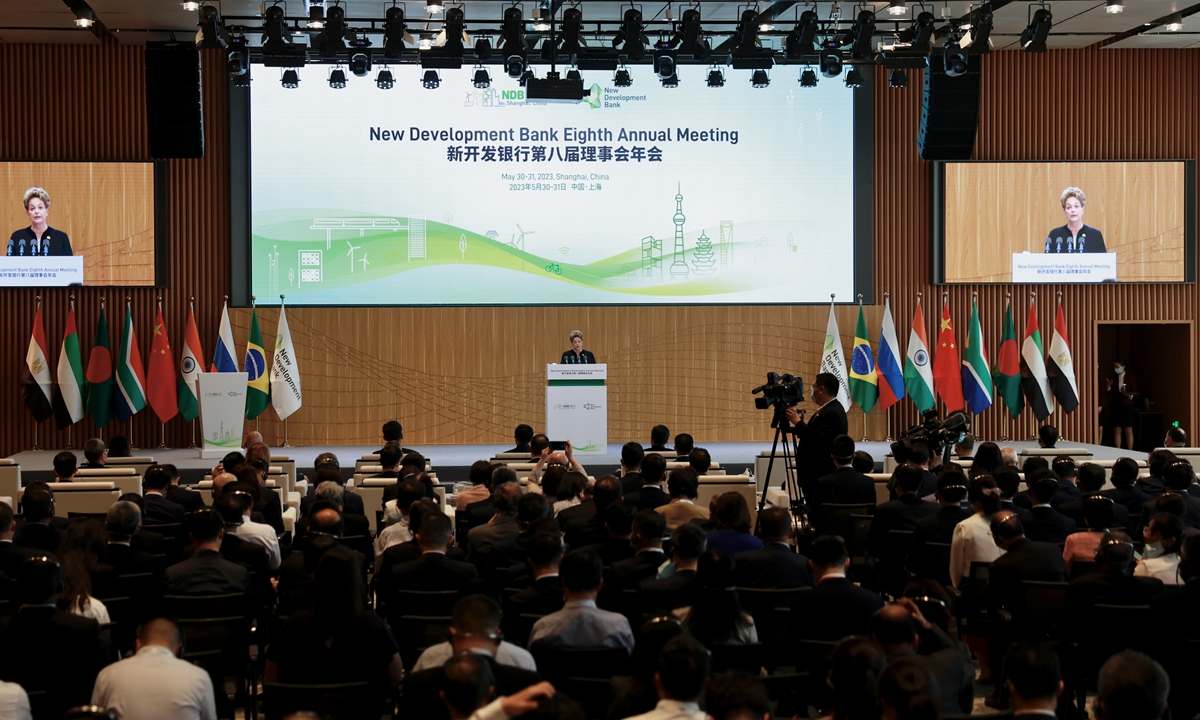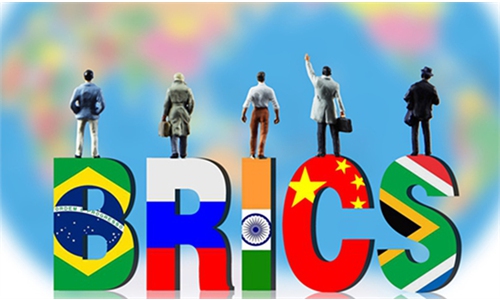NDB an important emerging force in multilateral development institutions: Chinese official

The New Development Bank (NDB) - an important milestone in BRICS (Brazil, Russia, India, China and South Africa) cooperation - is envisioned to be tasked with a number of key missions for developing countries, such as strengthening the voices of emerging economies, promoting local-currency financing, and expanding the partnership network, officials and bank executives said on Tuesday, as the multilateral bank held its 8th annual meeting.
At a time when geopolitical conflicts are flaring up, global supply chains are fragmented and the global economy has staggered, the successful operation of the NDB and its continuous business expansion carries special significance for the developing world that is vulnerable to external shockwaves. It not only provides access to more friendly loan conditions that most multilateral institutions dominated by developed countries have long neglected, but also elevates their voices in facilitating global financial system reform, officials and observers said.
Chinese Vice Premier Ding Xuexiang said at the opening ceremony of the meeting that the NDB has successfully completed its first round of membership expansion and its global influence is steadily being elevated, which makes the bank a vital emerging force among multilateral development institutions.
This year, the annual meeting is being held at the NDB's headquarters in Shanghai on Tuesday and Wednesday under the theme of "Shaping a New Era for Global Development." The meeting aims to draw up plans for the NDB's development in the next phase.
Chinese Finance Minister Liu Kun said at the opening ceremony that the bank's establishment would open a new chapter in the participation of developing countries, as represented by the BRICs, in global economic governance.
"As the founding member and host country, China is willing to work with other members to promote the stable operation of the New Development Bank and its continuous development," Ding said.
He expected the bank to promote the improvement of global economic governance, firmly safeguard multilateralism, and amplify the representation and voices of emerging markets and developing countries in global affairs.
Xi Junyang, a professor at the Shanghai University of Finance and Economics, said that international organizations like the NDB are perfect supplements to the current global financial system, which is monopolized by Western developed countries and offers limited help to emerging economies.
"The setting up and development of the NDB can help developing countries expand the usage of their currencies, while strengthening their economic and trade cooperation," Xi said, adding that NDB members can get more favorable loan interest rates, while getting better financial support on major projects related to their development.
This means they can get another financing channel to fuel their projects other than commercial fundraising.
According to Xi, the meeting showed that China is very proactive in pushing the NDB's development. This will push NDB members to have closer financial connectivity and bring economic benefits to relevant members.
NDB President Dilma Rousseff listed several priority tasks for the bank in the immediate future. One among them is to "seek to fund a greater share of our projects in local currencies, with the dual objectives of strengthening the member countries' domestic markets and protecting our borrowers from the risks of currency fluctuations."
Observers believe that US dollar hegemony has made emerging markets vulnerable to financial fluctuations, and raising funds in local currencies would help hedge against risks amid the sweeping global wave of de-dollarization.
According to Rousseff, local-currency financing represents approximately 22 percent of the bank's portfolio. The bank has set a goal to raise the share to 30 percent in the 2022-2026 strategic cycle.
Another task is to expand its outreach, seeking diversity in member countries, both in terms of geography and stages of development.
The BRICS represent 25 percent of global GDP. They're the founding members, while the UAE, Uruguay, Bangladesh and Egypt were the first batch of new members of the NDB.
The bank is in talks with Saudi Arabia on admitting the country as its ninth member, the Financial Times reported. The NDB did not respond to the Global Times' interview request as of press time.
As of Saudi Arabia's wish to enter the NDB, Xi said that the main wish is to strengthen economic and financial cooperation with countries under the NDB framework, especially China, which is Saudi Arabia's largest trade partner.

